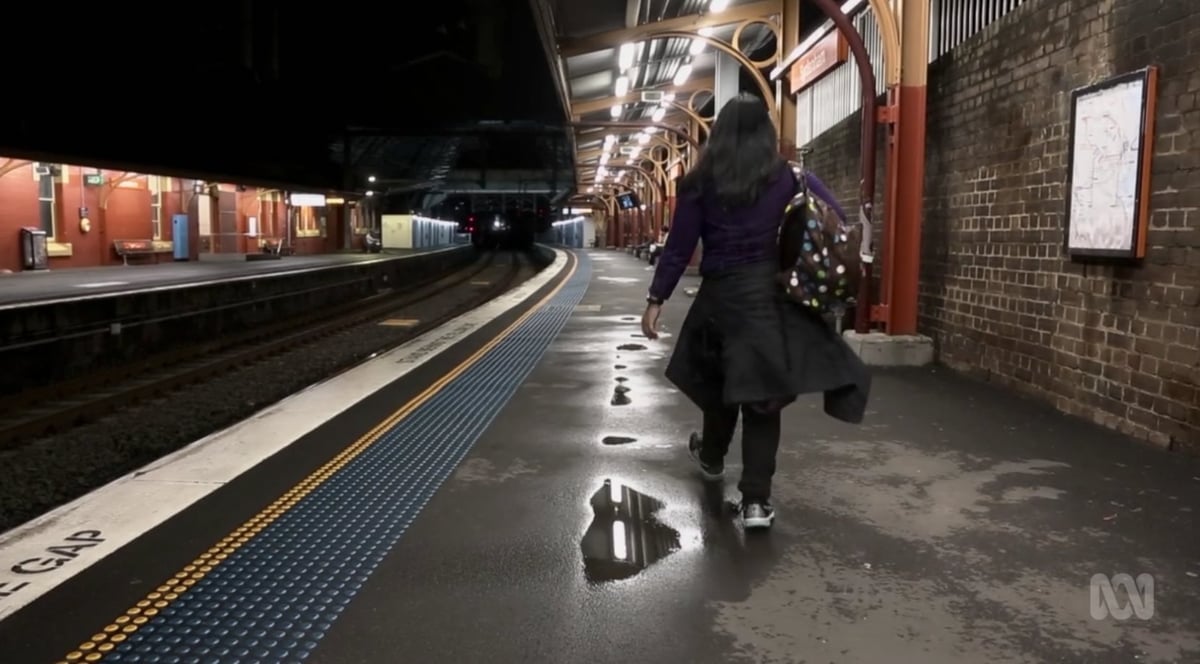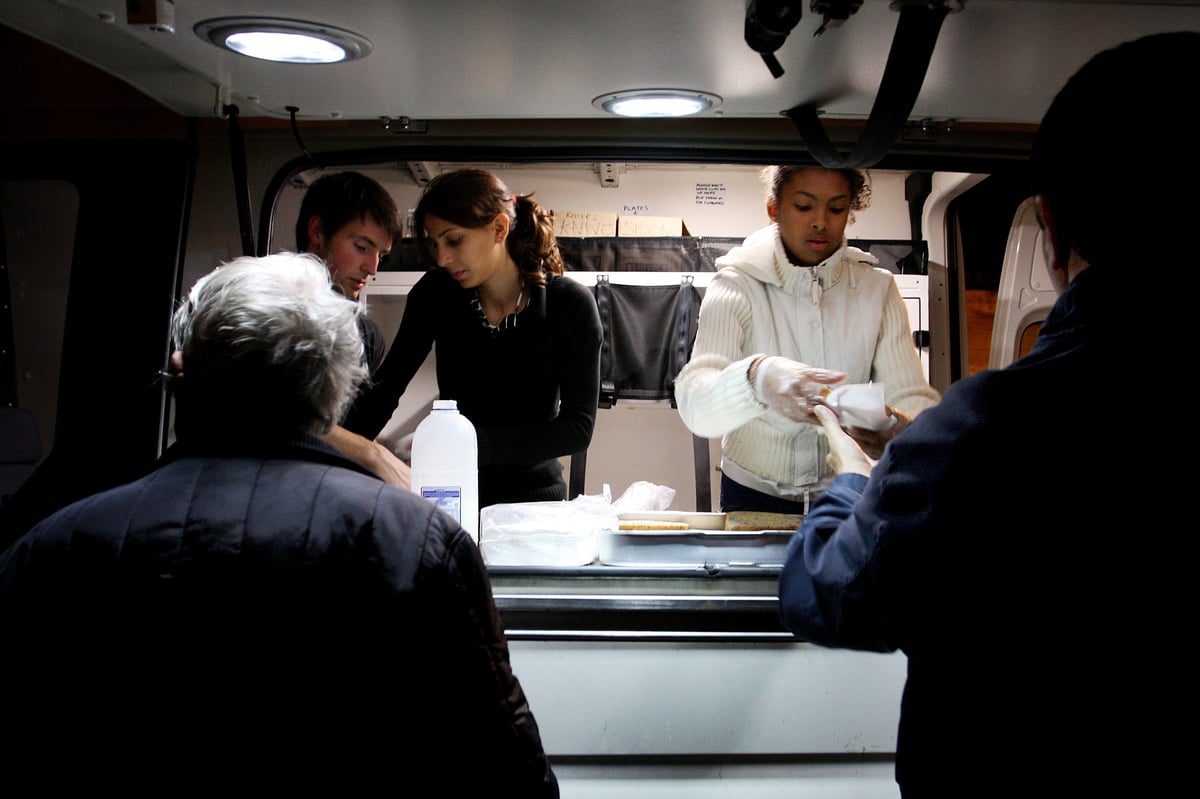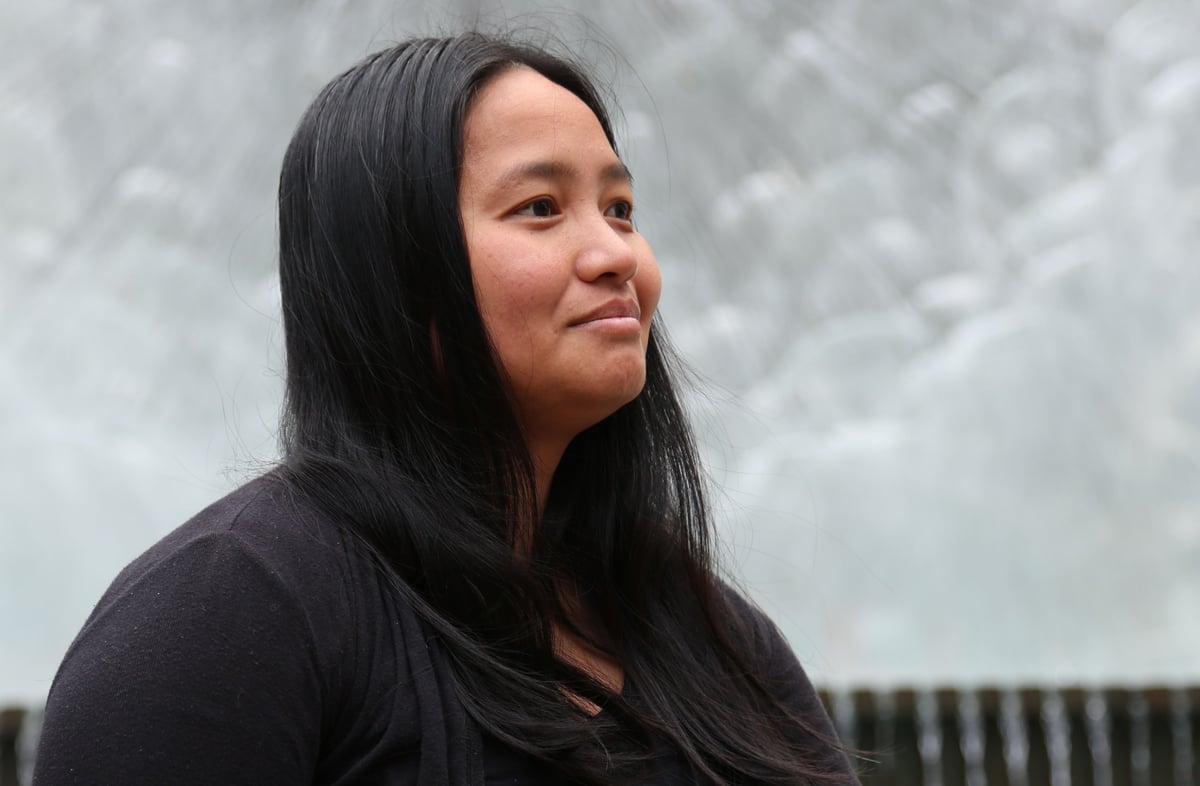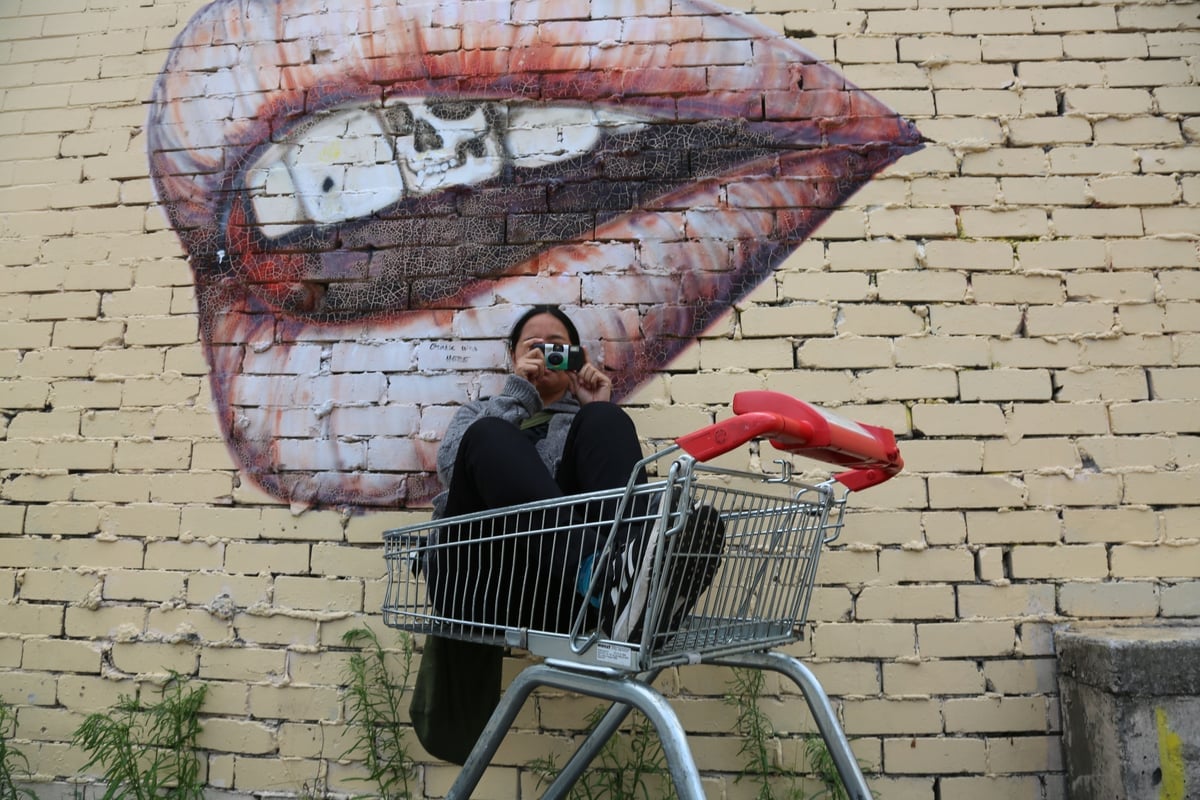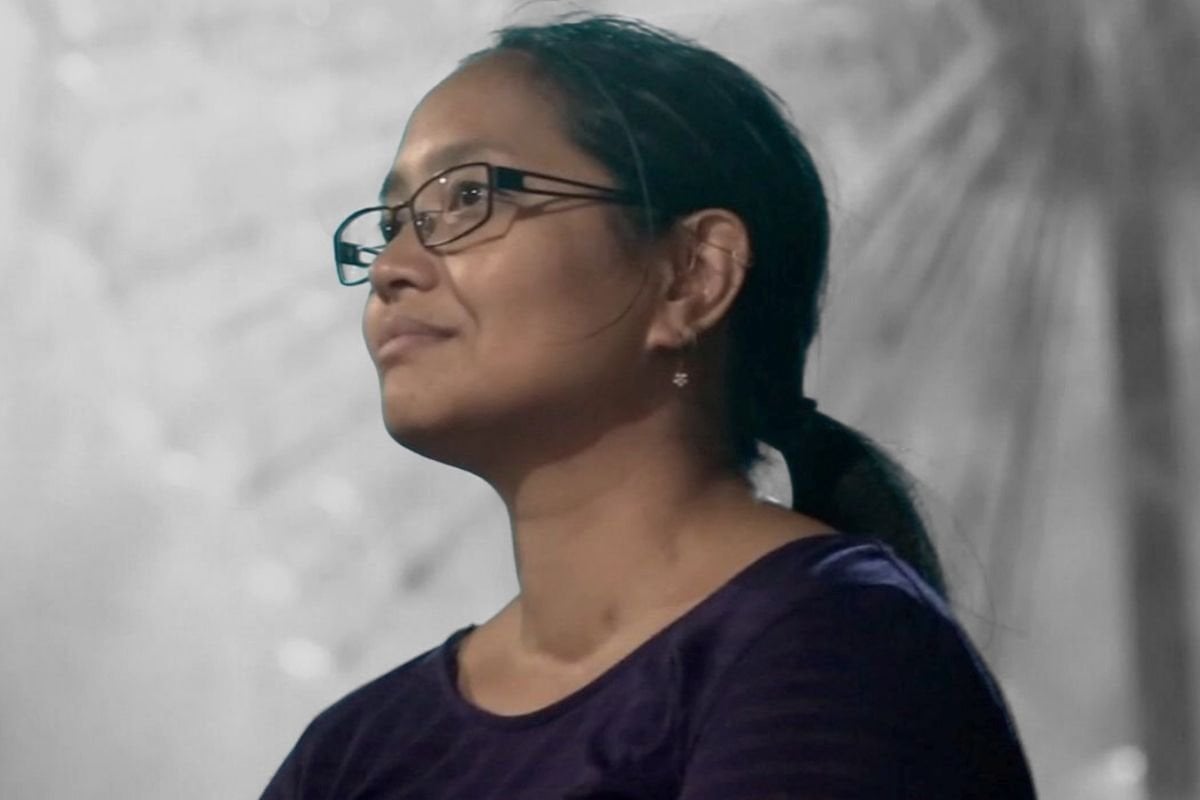
This post deals with sexual assault and suicide and might be triggering for some readers.
Sleeping in a park at night near other homeless people, mostly men, might seem like a dangerous thing to do.
But to Jai Jaru, who spent 20 years of her life in and out of homelessness, it didn't feel scary. Because when you're homeless your sensitivity to 'danger' is lower. You're immune to it, but you also don't have a choice.
It was actually walking the streets of Sydney's Rushcutters Bay at 2am that ended up being the most dangerous thing Jai ever did. She'd just been discharged from St Vincent's Hospital, and didn't think it was worth finding a place for some shuteye with only a few hours of darkness left, so set off on a stroll.
Three men attacked and raped her. They've never been caught.
Watch: Jai's story is told in the documentary Picturing Home. Post continues after video.
But when Jai lays down in a park near other homeless people, she's chosen to sleep in that group. As Jai explains, there's a solidarity amongst Sydney's homeless that's almost impossible to explain to those who haven't slept rough.



